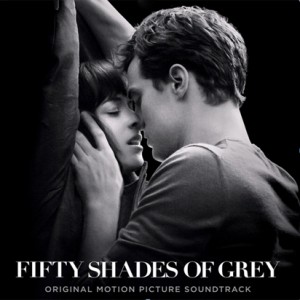Now that E. L. James has published Grey, which tells the events of Fifty Shades of Grey from Christian’s perspective (without any shades, it seems), it might be time for you to catch up to the film version in case you missed it.
People often complain that movies don’t live up to the books they’re made from. But let me assure you, Fifty Shades of Grey is very faithful to the original material. It’s a stone dud, too. I finally caught up with the movie myself recently and can tell you that the first ten minutes perfectly set the stage. There’s a piss-poor, logy version of the classic “You Put a Spell on Me” on the sound track that sounds as if Annie Lennox were embarrassed to have her name associated with the project. But hey, it must have been a hefty paycheck.
 That stinker sets the mood perfectly for Dakota Johnson, who’s the embodiment of the novel’s unreal nebbishy Anastasia. It’s totally unbelievable that she’d dress like a schlump for a big-deal interview, that she hasn’t read through the questions beforehand, and that she stumbles when she opens a door into Grey’s office. Just as his attraction to her defies belief. All of which makes the book idiotic from the get-go and the movie a good clone.
That stinker sets the mood perfectly for Dakota Johnson, who’s the embodiment of the novel’s unreal nebbishy Anastasia. It’s totally unbelievable that she’d dress like a schlump for a big-deal interview, that she hasn’t read through the questions beforehand, and that she stumbles when she opens a door into Grey’s office. Just as his attraction to her defies belief. All of which makes the book idiotic from the get-go and the movie a good clone.
 Once those ten achingly long minutes of the film are past, a desert of inanity stretches ahead of you. You lose the novel’s atrocious prose, but in its place there’s atrocious acting which is a reasonable substitute. And since there’s no real erotic chemistry in the book, the fact that the leads seem to be sleepwalking through the film even when their clothes are off totally fits. What’s strangest of all is that Jamie Dornan seemed much sexier playing opposite Gillian Anderson in The Fall. He was a psycho in that series. Go figure. Maybe the beard helped.
Once those ten achingly long minutes of the film are past, a desert of inanity stretches ahead of you. You lose the novel’s atrocious prose, but in its place there’s atrocious acting which is a reasonable substitute. And since there’s no real erotic chemistry in the book, the fact that the leads seem to be sleepwalking through the film even when their clothes are off totally fits. What’s strangest of all is that Jamie Dornan seemed much sexier playing opposite Gillian Anderson in The Fall. He was a psycho in that series. Go figure. Maybe the beard helped.
 In the film, he comes across as a pretty accessory like the ties, cufflinks, and watches in his dressing room we see at the beginning of the movie. That was a highlight, cinematically speaking, if you’re into luxury goods at least.
In the film, he comes across as a pretty accessory like the ties, cufflinks, and watches in his dressing room we see at the beginning of the movie. That was a highlight, cinematically speaking, if you’re into luxury goods at least.
Best moment of the movie, though: the trashy Victorian porn peacock feather. My spouse hadn’t read the book and muttered sarcastically when it came out, “Oh, dear.”
That pretty much sums it all up.
What I’d like to see is RuPaul’s version: Throwing Fifty Shades of Grey. Now that could be fun.
Lev Raphael is an avid movie goer, having been raised on classic films of the Thirties, Forties, and Fifties. You can find his 25 books on Amazon.

